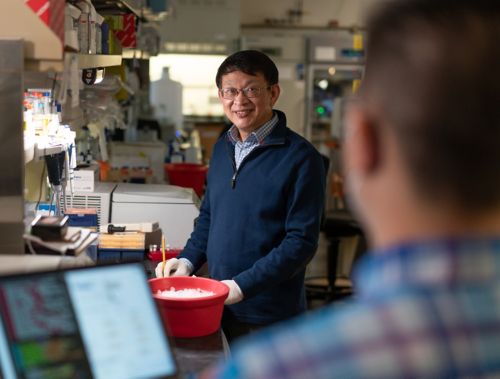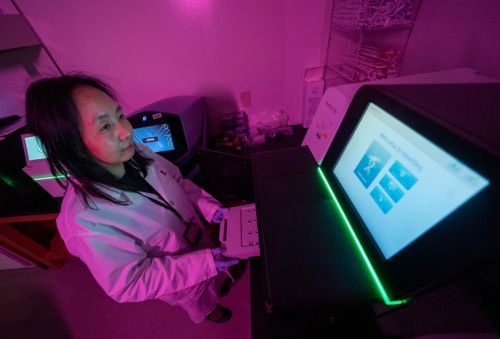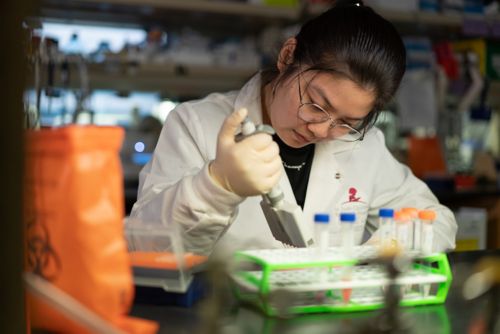St. Jude Family of Websites
Explore our cutting edge research, world-class patient care, career opportunities and more.
St. Jude Children's Research Hospital Home

- Fundraising
St. Jude Family of Websites
Explore our cutting edge research, world-class patient care, career opportunities and more.
St. Jude Children's Research Hospital Home

- Fundraising
Yong Cheng Lab
Investigating functions of regulatory elements in normal blood development and blood disorders
About the Cheng Lab
We are interested in understanding the functions of cis-regulatory elements (CREs) in the human genome that control and coordinate gene expression, with a focus on their roles in normal blood cell development and childhood blood disorders.

Our research summary
Our research agenda is organized around three central questions: 1) What is the spatial and temporal organization of CREs in different cell types and during different stages of blood development? 2) How do common and rare variants in CREs impact normal hematopoiesis and blood disorders? 3) How can CREs be manipulated to improve the treatment of genetic blood disorders? We tackle these questions with a combination of experimental and computational approaches.

Using hematopoiesis as a model system, we study the dynamic organization and functions of CREs such as enhancers, insulators, and silencers. We apply different bulk- and single-cell based high-throughput functional genomic technologies to capture different layers of features of CREs. We mine high-dimensional data with computational models to understand the underlying patterns and validate our predictions with high-throughput genetic and epigenetic perturbation assays.
Pinpointing functional noncoding DNA sequences and defining their contributions to health-related traits is a major challenge for modern genetics. We develop high-throughput mutational screens to generate a high-resolution map of functional CREs that regulate red blood cell traits (Nature Genetics, 2021). Our findings also generated potential new genetic targets for therapeutic base editing of hematopoietic stem cells to treat SCD and b-thalassemia.

We develop different computational pipelines and tools to improve the efficacy and safety of genetic therapies for blood disorders. We developed a program to automatically search and optimize the design of prime editors (Genome Biology, 2021). We also developed a framework to facilitate “genomic safe harbors” identification by integrating polymorphic mobile element insertions (pMEIs) with epigenomic signatures and 3D chromatin organization information.
Selected publications
Contact us
Yong Cheng, PhD
Hematology
MS341
St. Jude Children’s Research Hospital

Memphis, TN, 38105-3678 USA GET DIRECTIONS